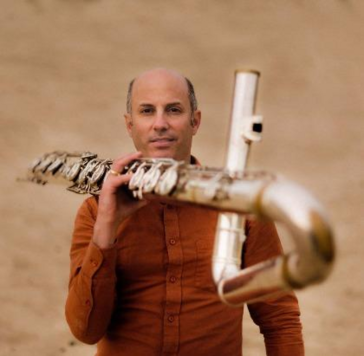One of the aims of the TALENTS-project is to create (interdisciplinary) learning communities in which engineering professionals, students, teachers, and researchers can learn together and collaborate as equal partners, within the context of authentic challenges, starting from their individual learning goals. To what extent are partners willing to participate in this partnership and under which conditions do they consider it to have added value? We conducted individual interviews with engineering students (N=11), teachers (N=12) and professionals (N=10) about what they require to participate in the learning community, employing epistemic, spatial, instrumental, temporal, and social elements of learning environments. We also inquired which resources participants were willing to invest. Data were summarized on group level in a within-group matrix, following these elements. Next, we employed a cross-group analysis, focusing on commonalities and differences. The most striking results were found in the epistemic, social, and instrumental elements. Respondents have similar needs when it comes to improving dialogue to formulate a challenge. However, professionals prefer to have more influence on formulating this challenge and its output, whereas teachers wish to focus on students’ development. Students wish to co-create with partners and they place importance on matching students with a challenge that aligns with their educational background and personal interest. To create an environment based on equality, students need traditional roles of teachers, clients, and students to be less apparent. Ultimately, almost all respondents are willing to co-operate as equal partners in the learning community because they can see it leads to added value.
MULTIFILE

This special edition is dedicated to the research of Professor Cornelia Roux. The articles captured in this edition are contributions from some of her scholarly friends, nationally and internationally, the doctoral candidates she has delivered over the years, and her postdoctoral fellows. The works reflects the main themes in Roux’s research over the years and illustrates the evolution it has undergone, i.e. moving from Religious Studies to Human Rights in Education for diverse cultural, religious and gender contexts.

Students in Higher Music Education (HME) are not facilitated to develop both their artistic and academic musical competences. Conservatoires (professional education, or ‘HBO’) traditionally foster the development of musical craftsmanship, while university musicology departments (academic education, or ‘WO’) promote broader perspectives on music’s place in society. All the while, music professionals are increasingly required to combine musical and scholarly knowledge. Indeed, musicianship is more than performance, and musicology more than reflection—a robust musical practice requires people who are versed in both domains. It’s time our education mirrors this blended profession. This proposal entails collaborative projects between a conservatory and a university in two cities where musical performance and musicology equally thrive: Amsterdam (Conservatory and University of Amsterdam) and Utrecht (HKU Utrechts Conservatorium and Utrecht University). Each project will pilot a joint program of study, combining existing modules with newly developed ones. The feasibility of joint degrees will be explored: a combined bachelor’s degree in Amsterdam; and a combined master’s degree in Utrecht. The full innovation process will be translated to a transferable infrastructural model. For 125 students it will fuse praxis-based musical knowledge and skills, practice-led research and academic training. Beyond this, the partners will also use the Comenius funds as a springboard for collaboration between the two cities to enrich their respective BA and MA programs. In the end, the programme will diversify the educational possibilities for students of music in the Netherlands, and thereby increase their professional opportunities in today’s job market.

The PANTOUR consortium builds on previous knowledge and tools produced by the Blueprint for Sectoral Skills project/NTG Alliance and will develop new tools and methodology to address strategic and sustainable approaches and cooperation between vocational education, training, higher education, enterprises of the tourism sector, looking to boost innovation in Europe (in tourism, leisure and hospitality).Societal IssueThe aim of this project is to map and bridge the existing skills gaps in Green, Social and Digital skills of workforce in tourism, leisure and hospitality.Benefit to societyMaking lifelong learning and mobility a reality, developing innovative learning solutions and promoting inclusiveness and access to education. Promoting active citizenship, building equal opportunities and addressing gender equality, diversity and inclusiveness in targeted actions.The consortium aims especially at designing innovative and cooperative solutions to address skills needs in the tourism ecosystem, with the development of outputs such as: the Sectoral Skills Intelligence Monitor, the Tourism Skills Lab, Resource Books for Trainers, the implementation of the National Skills Groups, a Skills Strategy Plan for 2026-2036, among others. With the exploitation of its outputs, PANTOUR seeks to benefit job seekers, unemployed and employed workers from the industry, employers, SMEs and micro entrepreneurs, dedicating a special attention in reskilling and upskilling the workforce on future skills needs in digital, green and social skills.The number of people benefiting from this proposal will be over 10 million that work across the tourism and leisure sector in Europe.The consortium is a multi-disciplinary partnership which comprises 13 European partners: Industry Partners and Tourism Sector Representatives, Universities and Transnational partners. Project lead is CEHAT (Spain). The other partners are GESTLABOR (Spain), Turismo de Portugal (Portugal), Zangador Research Institute (Bulgaria), Technological University Dublin (Ireland), Federturismo Confindustria (Italy), VIMOSZ (Hungary), European Tourism Association ETOA (Transnational), Satakunta University of Applied Sciences (Finland), Ruraltour (Transnational), Landurlaub (Germany), University of the Aegan (Greece).